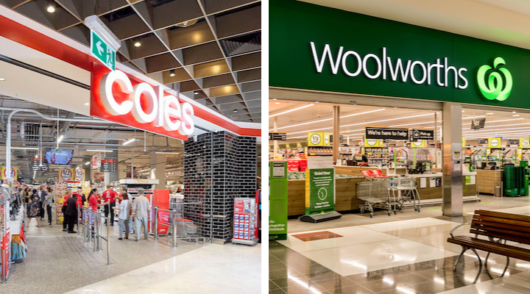 Stan Gordon, CEO of the Melbourne-based Franchised Food Company, claims food retailers will struggle to survive if their occupancy costs exceed 15 per cent.
Stan Gordon, CEO of the Melbourne-based Franchised Food Company, claims food retailers will struggle to survive if their occupancy costs exceed 15 per cent.
Gordon’s multi-brand food franchise company generates annual sales of around $50 million from 200 stores trading as Cold Rock, Mr Whippy, Trampoline and Healthy Habits.
Stores are located in strip centres and malls, but Gordon has effectively stopped recruiting new franchisees and opening new outlets because rents are now edging above 20 per cent of sales.
Franchised Food Company’s store expansion program is down from around 15 new outlets a year to three or four, as Gordon sees little value in signing up to leases of five or six years with no renewal options and at rents that provide too little return for retailers.
Gordon’s wariness of demands for 20 and 30 per cent increases in shopping centre rents contrast with some of the more adventurous franchise systems that have aggressively expanded store networks in response to short-term inducements from landlords that are supposed to offset the rents inked into lease contracts.
Gordon claims some small food tenancies in shopping centre food courts have a rental bills of more than $150,00 which would require sales of at least $800,000 to be viable, a turnover level that none of Franchised Food Company’s outlets achieve.
It could be argued that Gordon’s retail brands are not among the most recognisable takeaway food brands, creating a less conciliatory attitude from the major shopping mall landlords in lease negotiations.
However, Gordon’s 15 per cent ratio for occupancy costs to sales is a useful metric for most food retailers and especially for franchise outlets, which also need to meet advertising and franchise fees levied by the franchisor.
Headaches and pain points
Franchisees in food outlets have been under increasing financial pressure in the past five years as rents and outgoings charges have climbed along with wages bills and power and gas utility charges.
At the same time costs have been rising, the customer counts in many shopping centres have been flat or even declining, while the competition has sharply increased as shopping centre landlords have been recruiting more food operators to offset reduced floorspace allocated to fashion tenants.
Challenging retail conditions more broadly, including subdued consumer spending, have stress tested food franchise systems in the past few years, with many of them embroiled in disputes with disgruntled franchisees.
There are several issues that are central to the disputes in at least some of the food franchise systems, including site selection, marketing effectiveness, the levies charged and the high establishment and fitout costs of outlets that has a limited life under lease provisions.
Arguably, however, the most crucial issue is the recruitment of franchisees who are not good business people and have no retail experience or, frequently, no experience in employing or managing staff and little enthusiasm for serving customers.
Too many franchisees buy into systems to buy themselves a job, rather than to build a business, and financial pressures on the franchisors means they are often sold a franchise against all better judgement and too often with inadequate field support from the systems.
Some franchise systems seem to rely on franchisee churn which brings in additional income.
But there is also an imperative for some systems to quickly replace franchisees who walk away from stores because leases for the retail outlets are usually held by the franchisor who becomes liable for any shortfall in financial and operational commitments under the lease.
Most systems are keenly focused on network growth, on new store development and new investor recruitment to boost franchisor income and maintain the viability of the system.
A crucial income stream for franchisors are the ongoing fixed royalty or service fee calculated as a percentage of turnover for management of the system and retail support.
While the fee is often onerous for the franchisee and effectively a large slice off his or her bottom line, it is often not sufficient for the franchisor to provide the level of support expected and needed by franchisees, especially the ones who at greatest risk of failure and most likely to damage the reputation of the franchise system.
Marketing levy woes
Added to the franchisee’s financial commitments is usually another levy to cover system marketing activity, including brand building, promotions, advertising and social media expenditure.
The marketing levy has apparently become a key concern of many franchisees according to the Australian Competition and Consumer Commission (ACCC), which administers the franchising code of conduct.
The ACCC wrote to around 2,500 members of the Franchising Information Network last October, pointing out that marketing levies were a common source of complaint to the regulator.
Franchisees across various systems claim that marketing levies are used to boost franchisor profits either directly or by being allocated against other head office administrative costs, wages and sometimes even rent.
Franchisors claim the ACCC and the franchising code prevented them from weeding out poor franchisees, including those involved in the 7-Eleven wage scandal, while franchisees generally regard the regulator as largely disinterested in tackling franchise complaints.
Certainly media reports on issues within some franchise chains appear to have generated more action on franchisee complaints than any deliberations by the ACCC, which opted for the defence that it did not have sufficient legislative powers to enforce the franchising code of conduct.
The problem with RFG
While franchise systems such as 7-Eleven, Domino’s Pizza and the Caltex convenience chain continue to deal with the financial and reputational costs of the fallout from employee wage and visa scams, the Retail Food Group (RFG) is now under scrutiny after media coverage of franchisee discontent with its franchise systems.
Based at Southport on Queensland’s Gold Coast and ASX-listed, until now, RFG has been one of the more successful retail franchising companies.
Started in 1989 as the owner and manager of around 50 Donut King and bb’s Café stores, RRG has expanded aggressively with acquisitions and organic growth to around 2,500 outlets.
The company’s brands include the Donut King, Brumby’s Bakery, Michel’s Patisserie, bb’s Café, Esquires, Gloria Jean’s Coffees, It’s A Grind, The Coffee Guy, Café2U, Pizza Capers and Crust Gourmet Pizza Bar Brand Systems.
In recent years, the company has also expanded into food service, dairy processing and wholesale bakery operations under entities such as Hudson Pacific Food service, Associated Food service, Dairy Country and Bakery Fresh and a wholesale coffee business that trades as Di Bella Coffee Co.
For the full FY17, RFG posted a 27 per cent lift in revenue to $349.3 million, bolstered by acquisitions and the expanding foodservice operations.
The company’s net profit was up 14 per cent to $75.7 million after substantial increases in some cost centres, particularly marketing costs, which were booked at $2.35 million compared with just $400,000 two years previously.
RFG added 210 new retail outlets in FY17 and signed 15 new international territory licenses to take its tally of global market agreements to 81.
The international success and the expansion into food service and commercial enterprises has apparently rankled some of the Australian franchisees, who argue that RFG is developing those business operations to the detriment of the retail of the local retail brand franchise systems.
RFG rejects the claims and argues that the international licenses, the food service and commercial operations are all strengthening the company to the benefit of local franchisees.
To address any growing pains from its expansion and some of the disquiet of Australian retail franchisees, RFG initiated late last year a business-wide review by the international financial services firm, Deloitte.
Mentioned at the company’s annual meeting in November, the review is structured as a 24-month project with a key focus on the domestic franchise operations.
RFG managing director Andre Nell said the review will ensure the company’s strategic business model and those of its franchisees are appropriate for a retail market which “remains challenging, particularly for shopping centre tenants”.
“Legislative and regulatory obligations have also recently changed for both franchisors and franchisees and Retail Food Group already has in place a number of proactive measures to inform, support and educate franchisees to ensure they are aware of their obligations as employers,” Nell said.
“Deloitte is also evaluating the Company’s complementary monitoring and supervision framework in relation to managing franchisees’ employee entitlement compliance.”
In a statement issued on 7 December, Nell said the company has recently completed an extensive franchisee engagement process across its domestic brand network to allow it to better understand where franchisee outcomes can be improved.
“Numerous initiatives, including investment in business intelligence, digital capability, product innovation, retail design, field service support and supply chain improvements, have already been implemented to drive improved domestic franchise outcomes.”
Fairfax articles hit daily press on December, savaging RFG’s share price and, in part, prompting a profit downgrade for the first half of the 2018 financial year.
Nell said that like other retailers, “particularly those with shopping centre exposures”, RFG’s domestic franchise revenues are tracking lower than expected.
“Of the major brand systems, Crust and Donut King have continued to perform to expectation, whereas Michel’s Patisserie, Brumby’s and Gloria Jean’s are trading below expectations.
“Negative media coverage about franchising, retail and Retail Food Group in particular has also contributed to a noticeable decline in momentum in new and renewing franchise sales.
“Associated revenues are now forecast to be below prior expectations and future franchise trading revenues are also likely to be impacted.”
Nell said the commercial division, including food processing and distribution operations, and the international division are performing in line with expectation, but sales for the company’s coffee and allied beverage division are also below last year.
Nell has warned shareholders that net earnings for the first half of FY18 are now expected to be around $22 million down from $33.5 million in the comparable half last financial year.
Aware of the damage the adverse publicity has caused, Nell said this month it is “difficult to predict full year outcomes for the franchise segment under current circumstance”.





